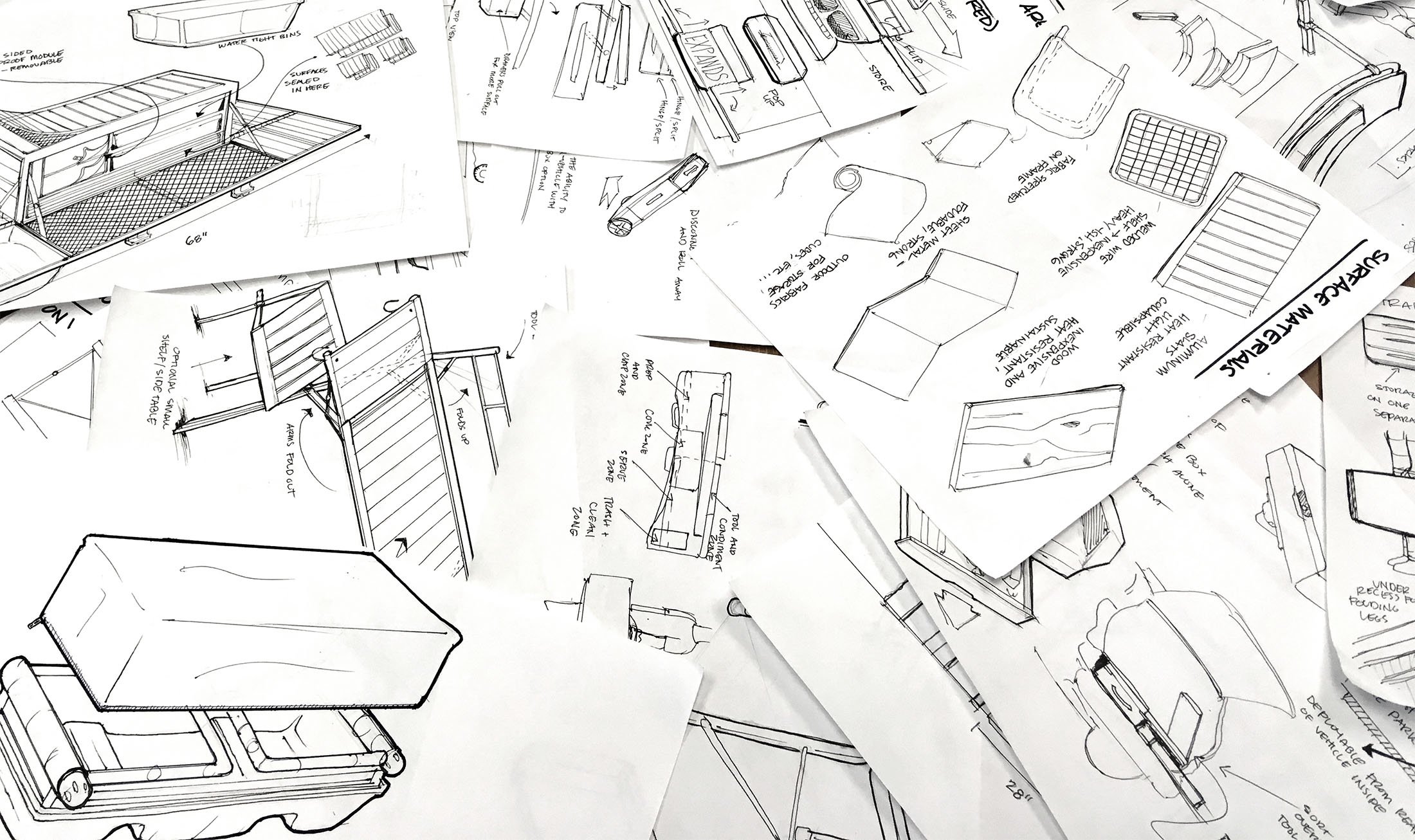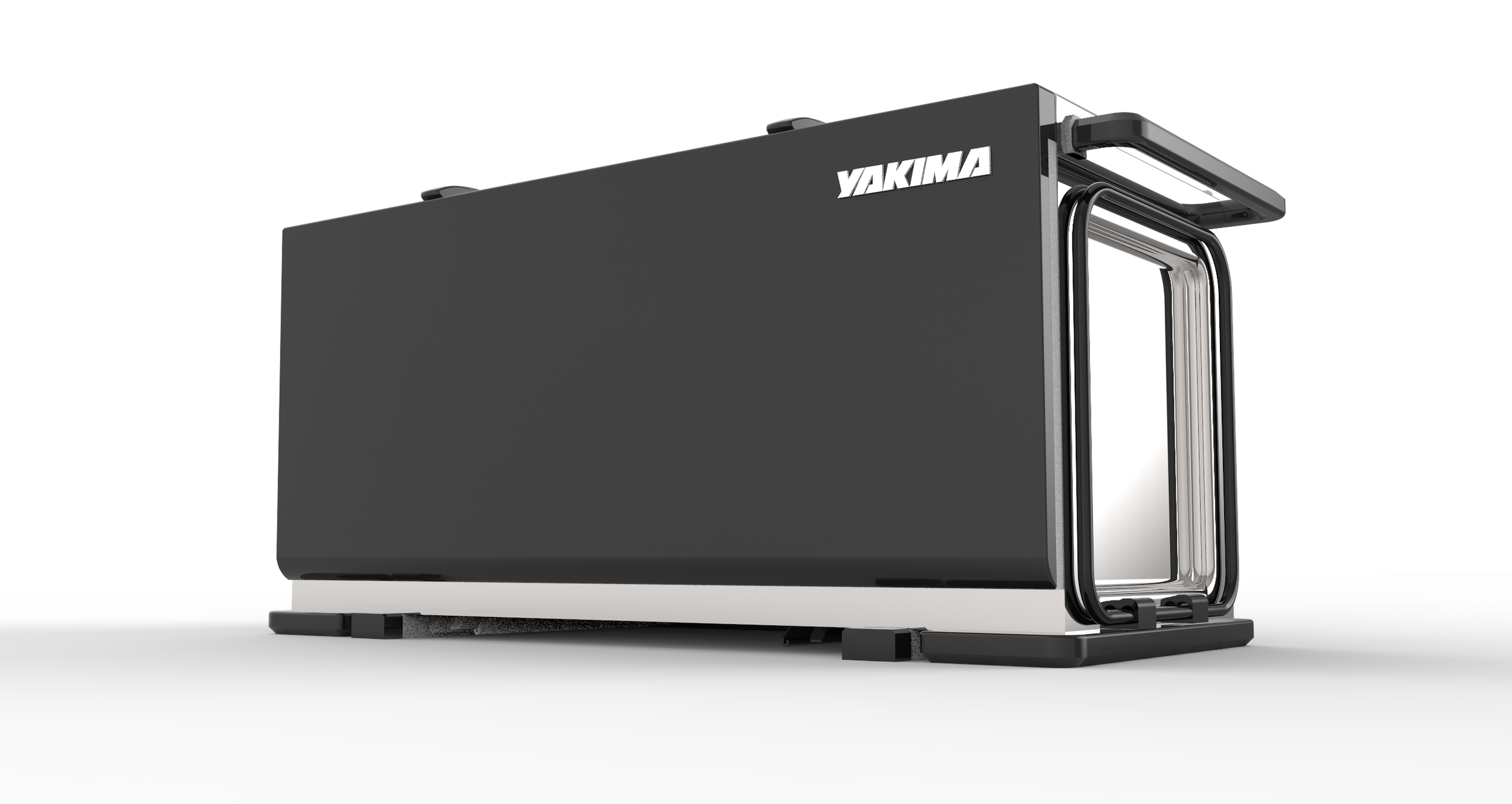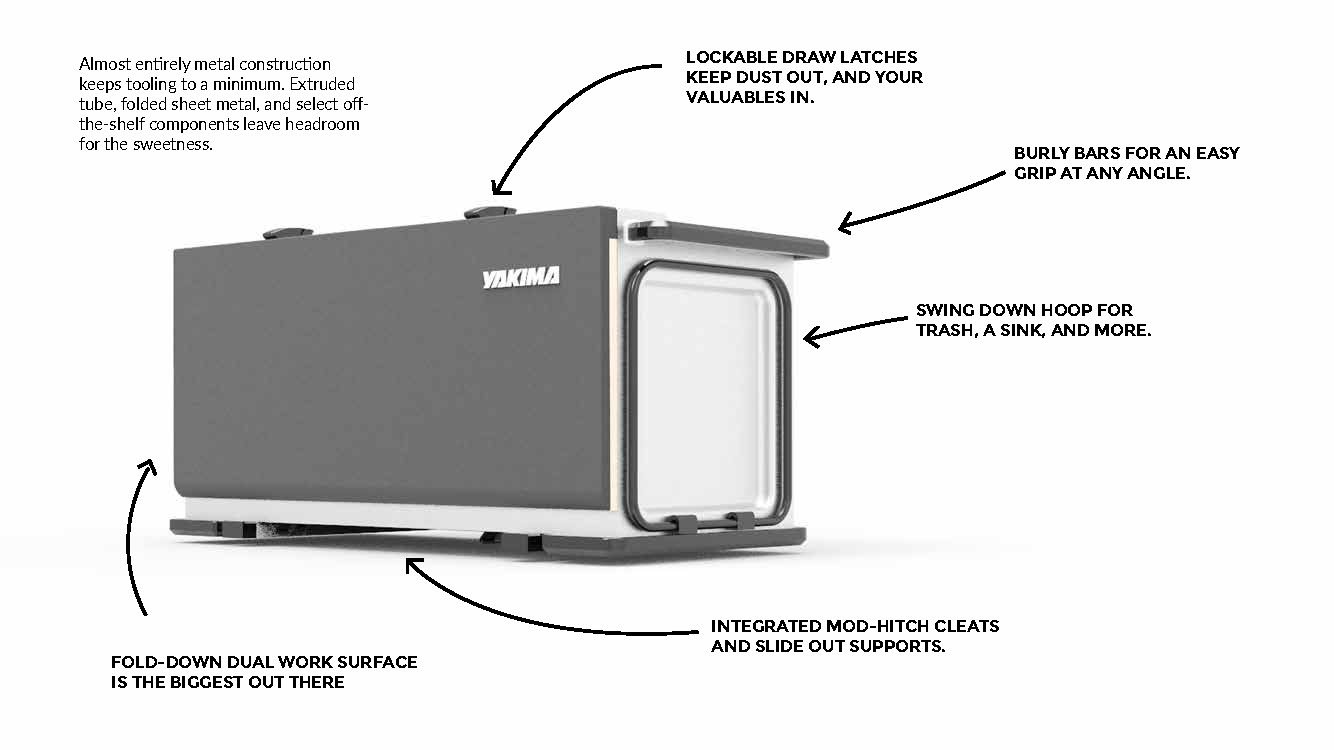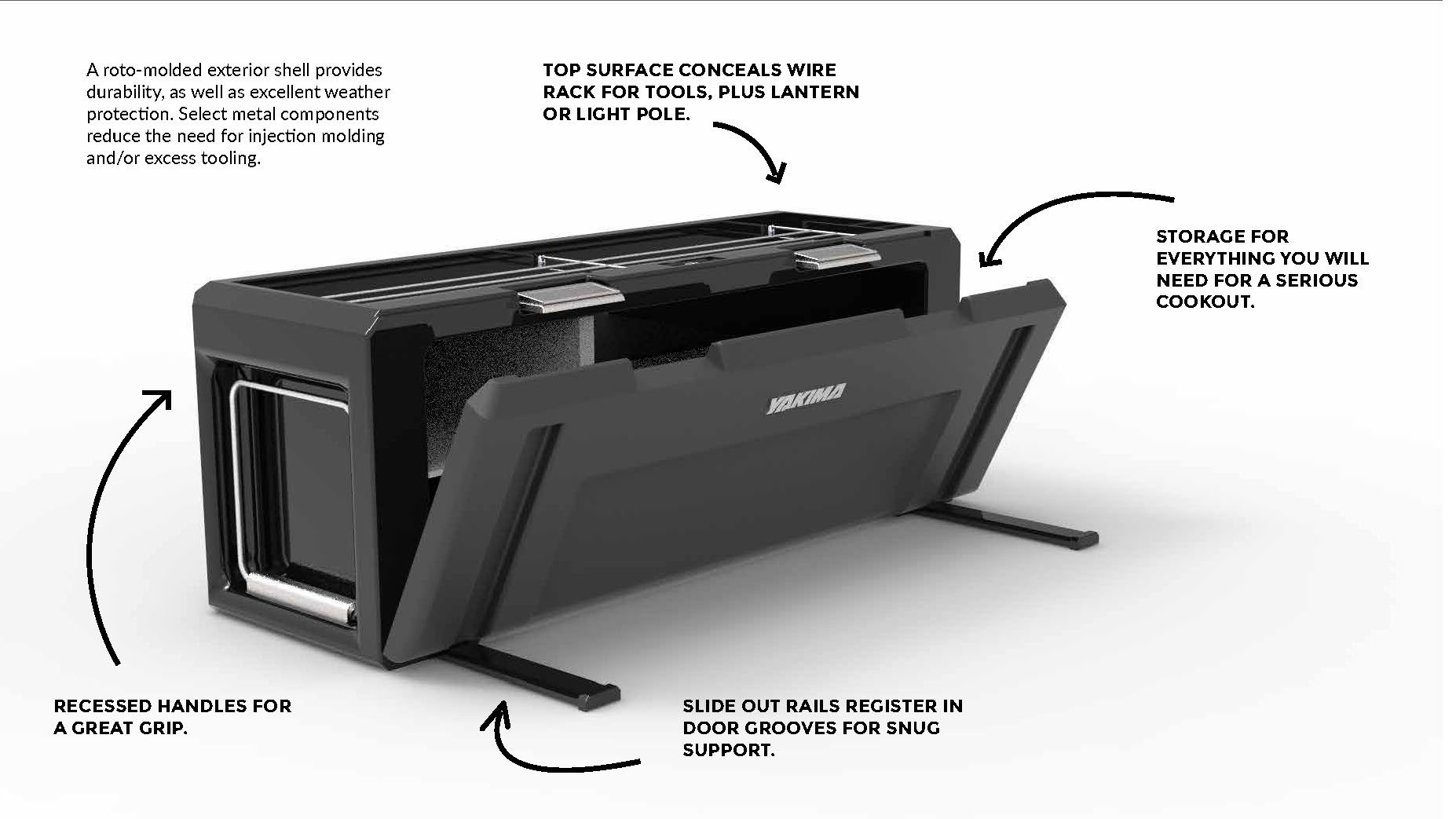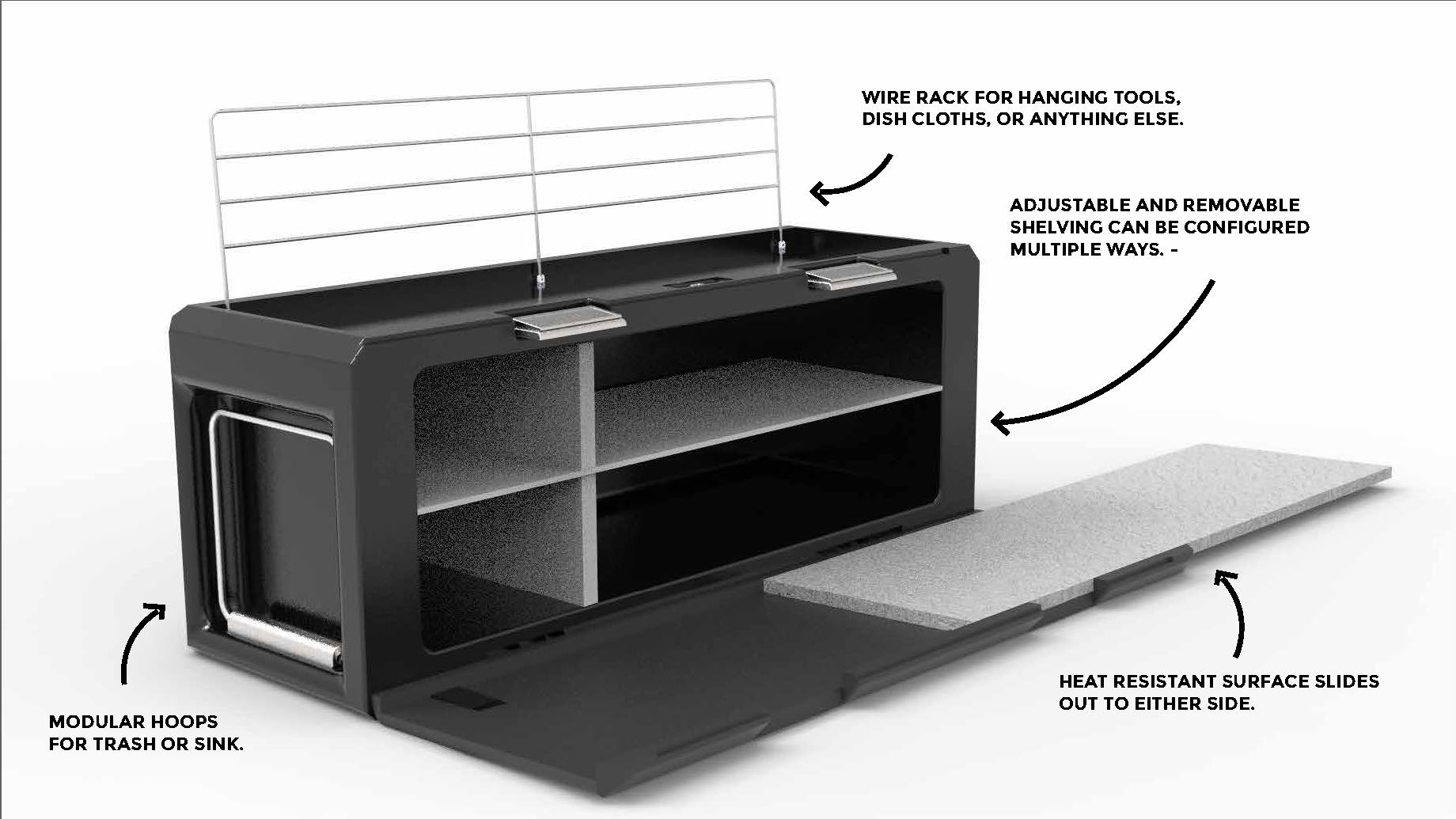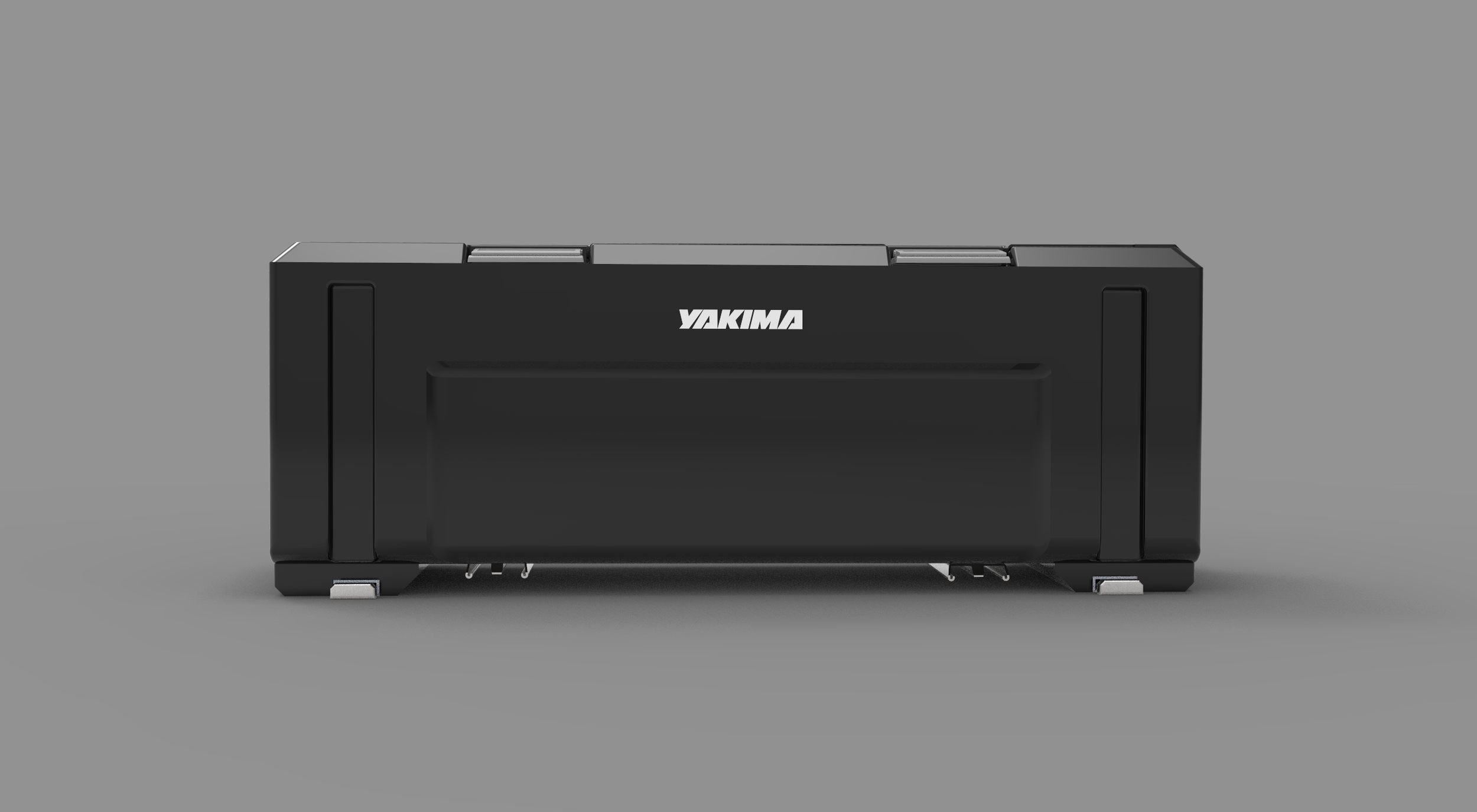
YAKIMA
Working with Yakima was a dream come true. At the intersection of gear-addiction, industrial design, and engineering, this legacy outdoor brand has always been at the very top of my most-admired list. I was fortunate enough to be invited to intern with them for a ten week research project in the summer of 2019.
INDUSTRIAL DESIGN INTERN / 2019 TEAM: JASON SAGEn, KIRK TURNER PROJECT OVERVIEW
As part of the Advanced Research and Development Team, we began the first phase of design research for a camp kitchen that would be easy to use, rugged enough to withstand on-vehicle transport and be compatible with the new line of modular, hitch-mounted Yakima products.

SCOPE AND CONSIDERATIONS
MANUFACTURING METHODS
Concepts focused on rotomolding and sheet metal/folded material.
SURFACE AND CAPABILITY
Considering ammenities, orientation, configuration, number and position of surfaces.
TRANSPORT AND STORAGE
Areas of interest include: outer shell, wheels, hitch mounts, protective cover
SEPARATE LEG KIT
Separate SKU for leg kit which should be easily integrated into any solution
RESEARCH AND DEVELOPMENT
Six week accelerated research and ideation sprint to cover as much creative ground as possible within the scope of the design objectives. From here we moved rapidly into prototyping and computer modeling.
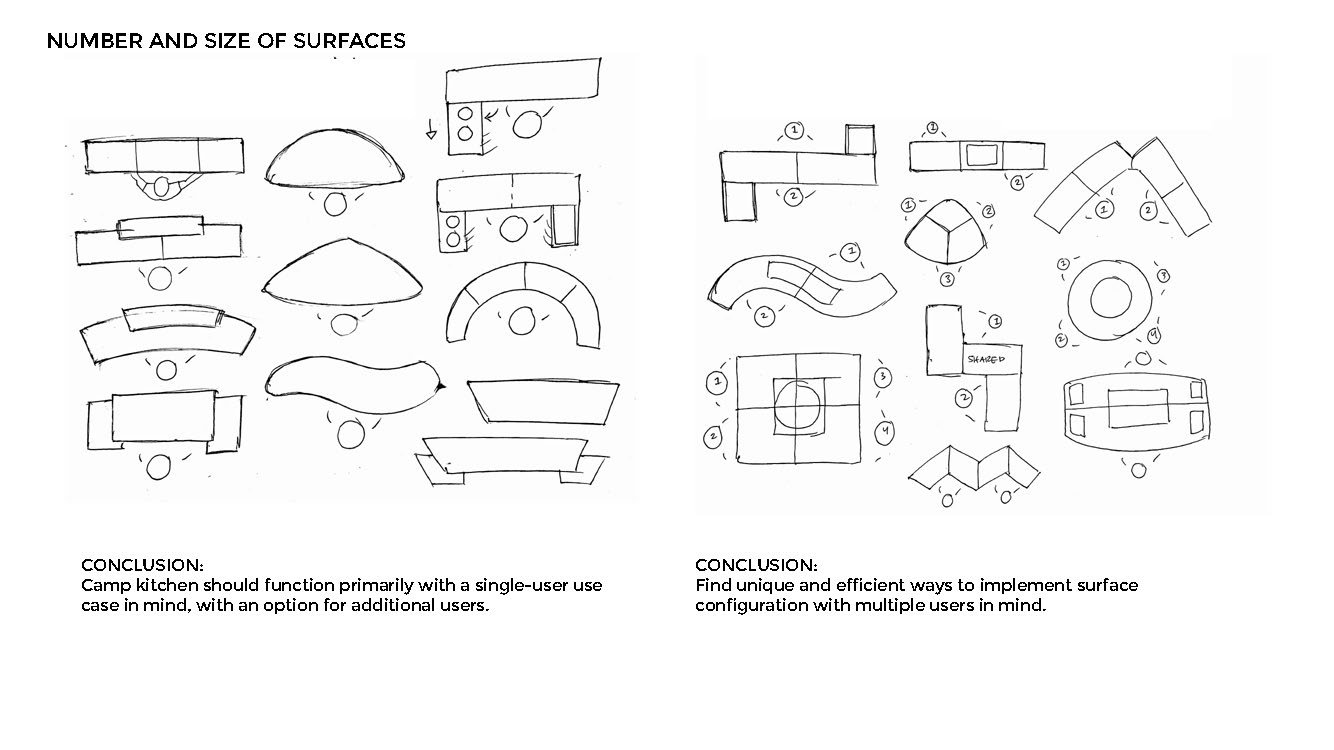



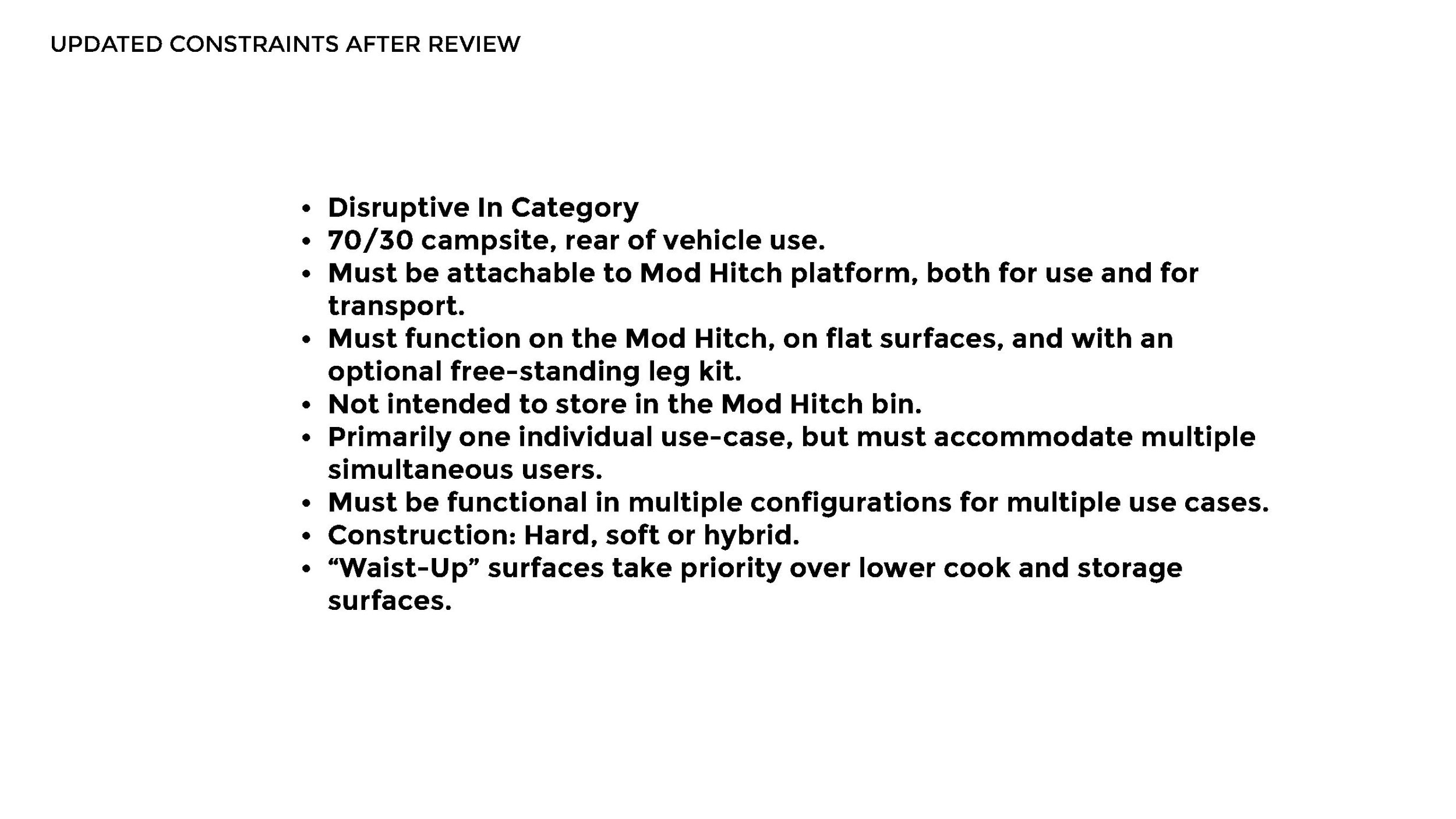
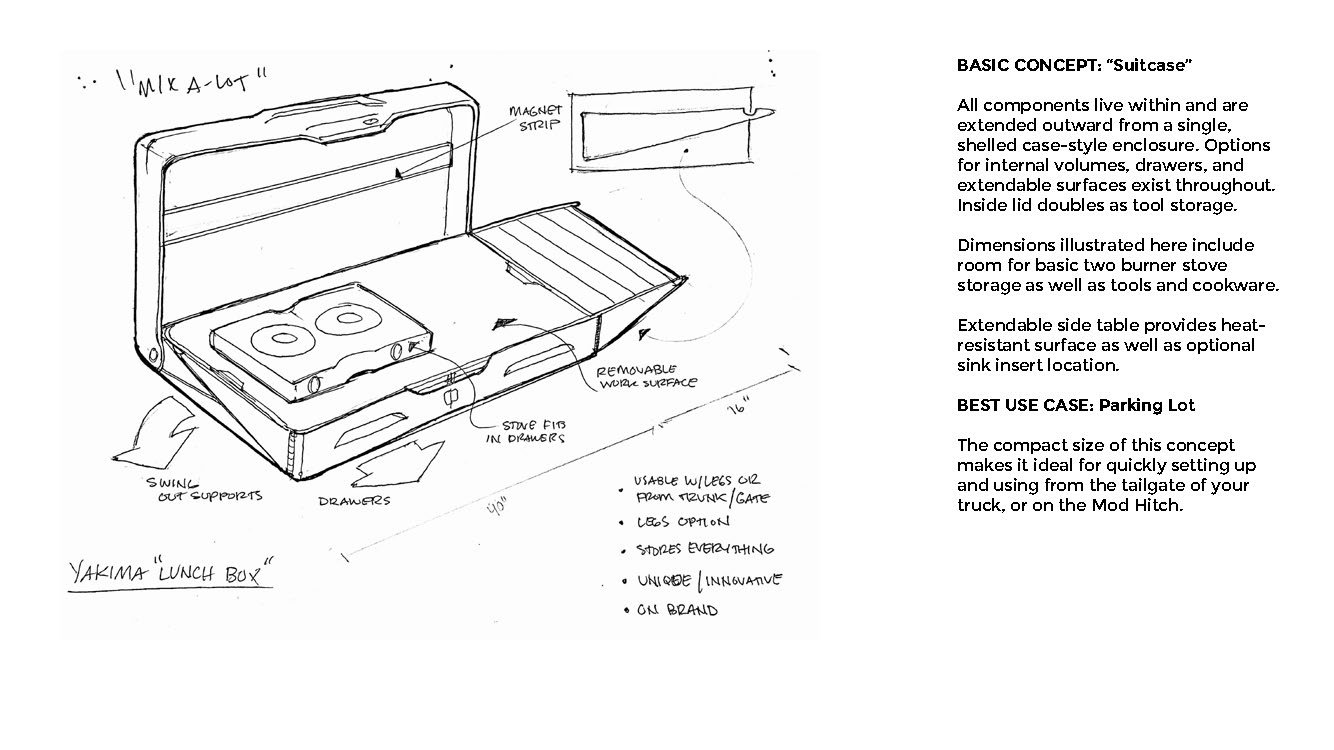
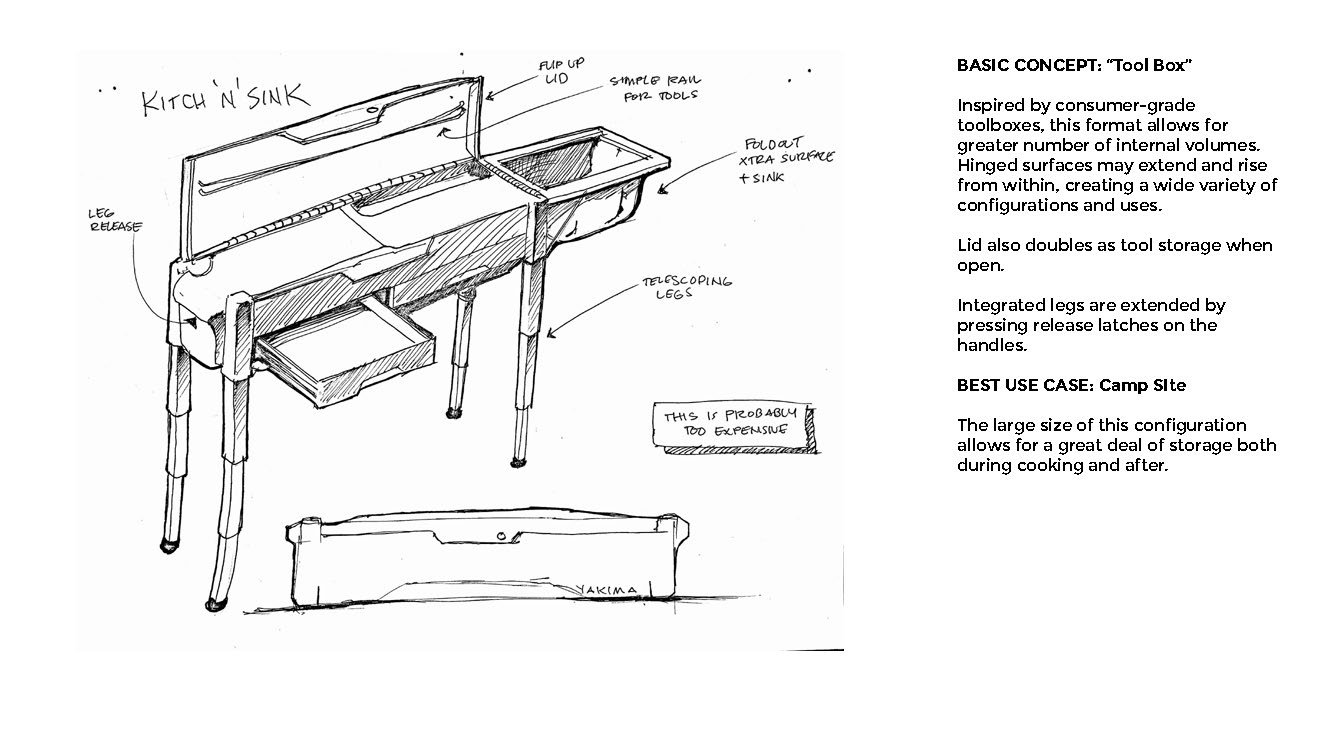



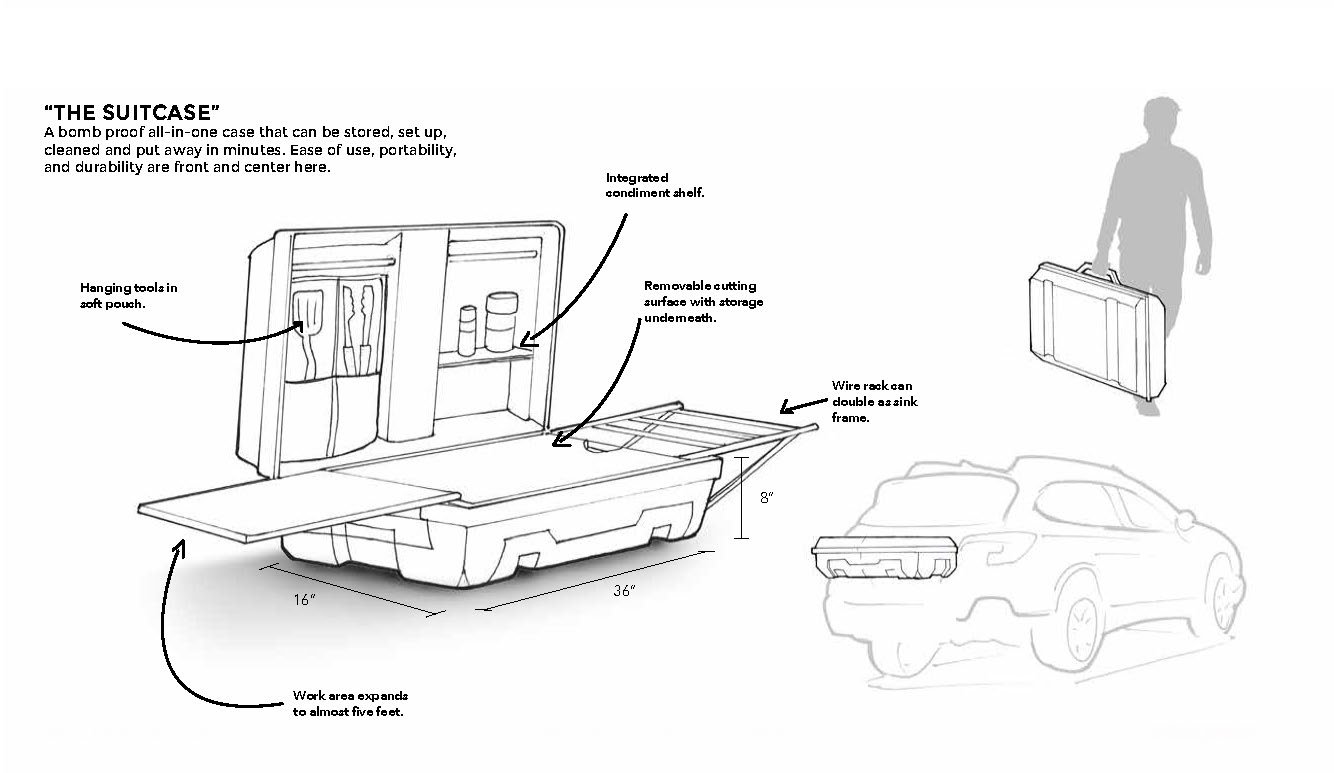

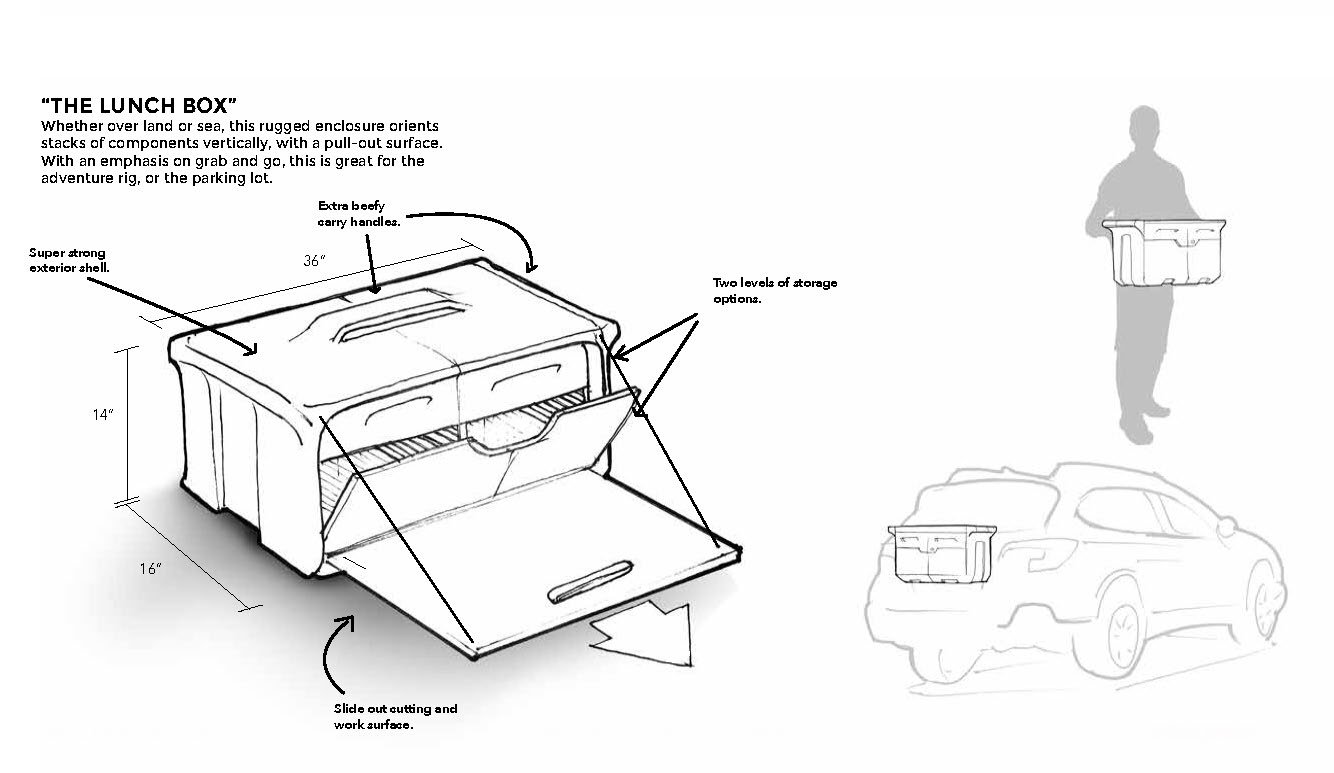


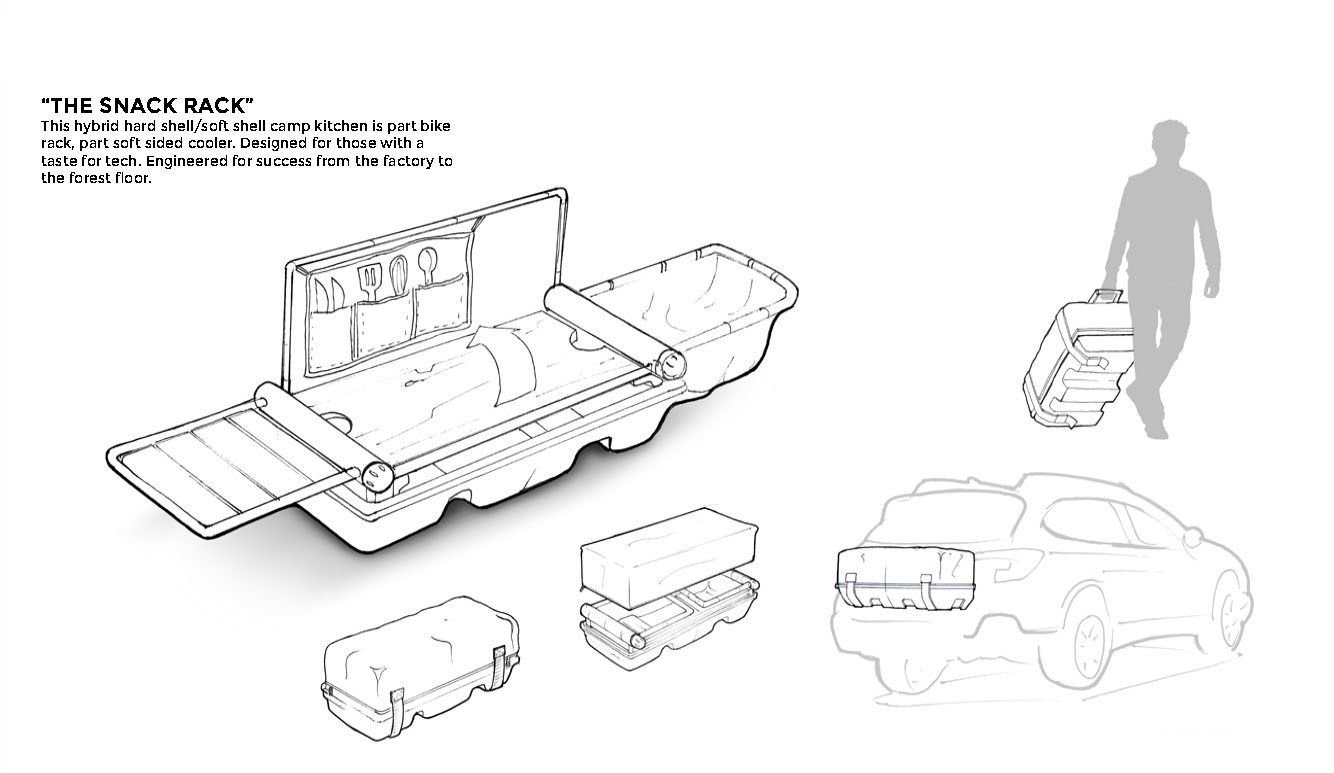

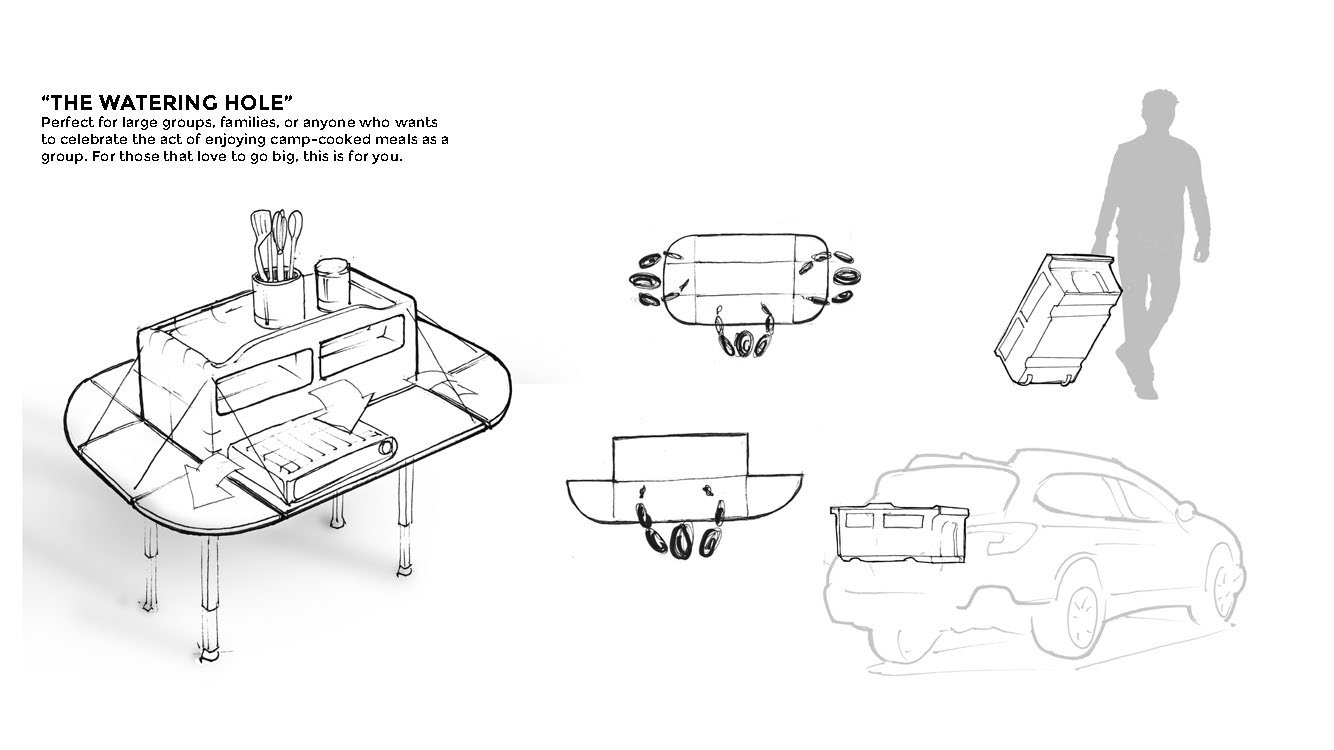
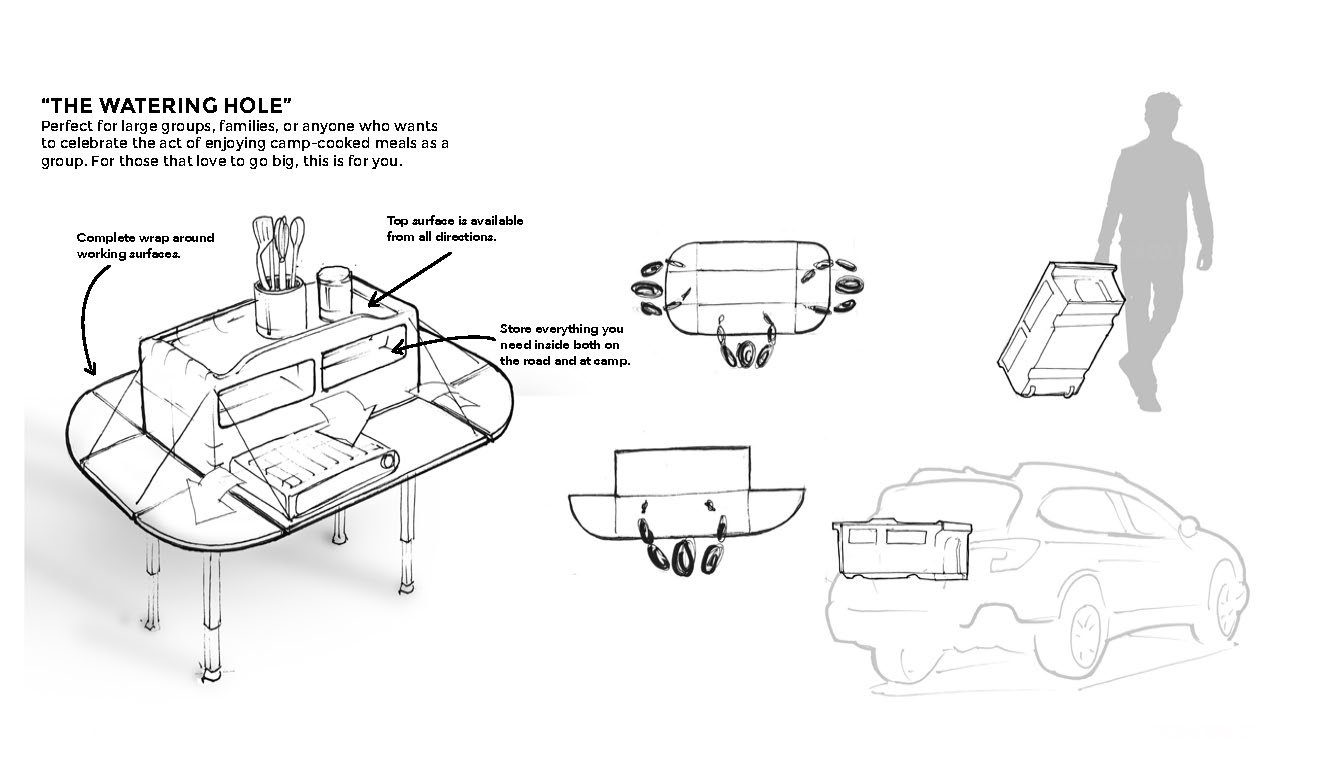
PRELIMINARY DECISIONS
CONCEPT 1 - “SUITCASE”
Hinged to open like a suitcase, using the lid as a rear wall for storage.
CONCEPT 2 - “LUNCH BOX
Designed like a lunch or tackle box, this design opens from the front.
CONCEPT 3 - WATERING HOLE
This concept is the largest, designed for the group experience.
FORM STUDIES
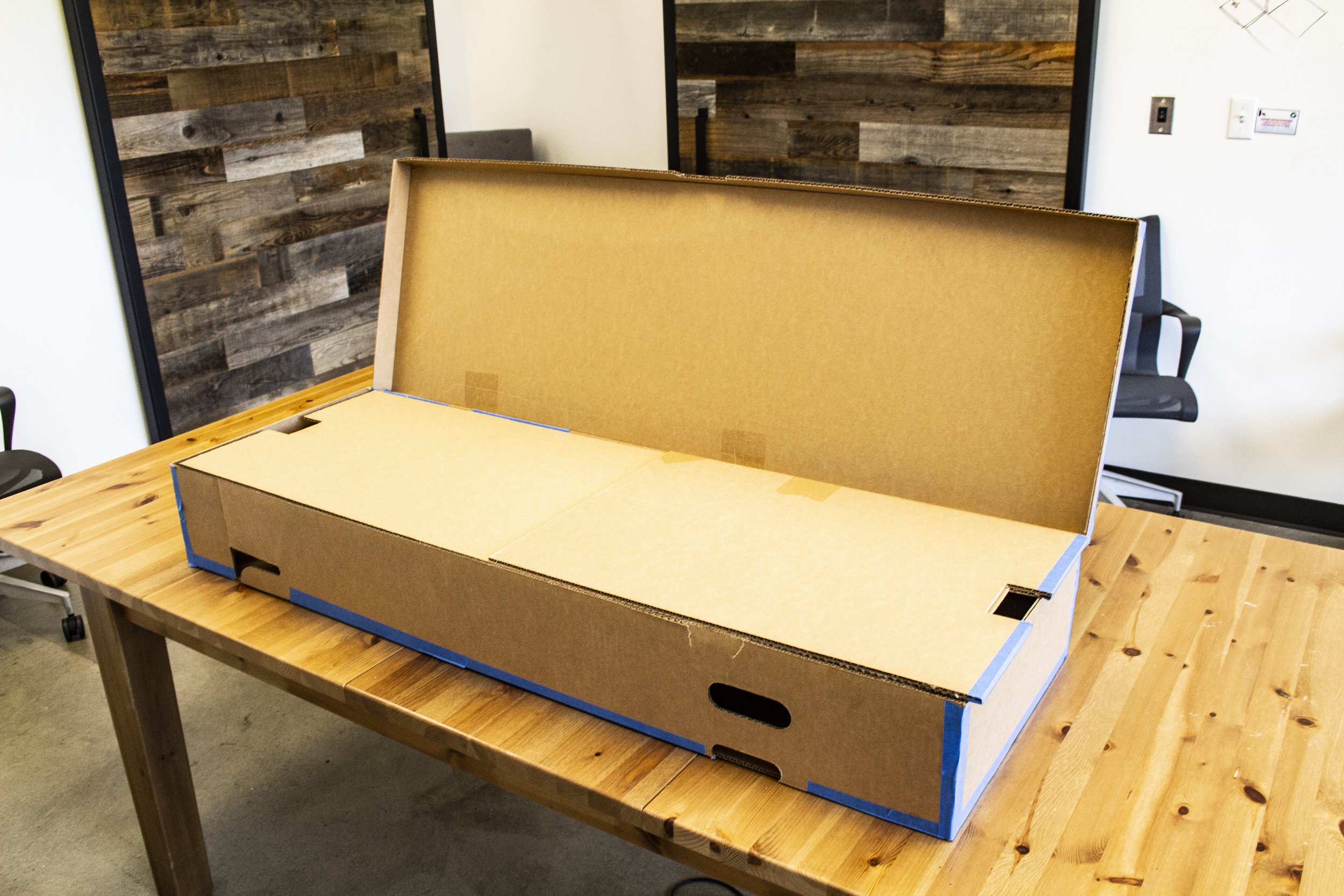
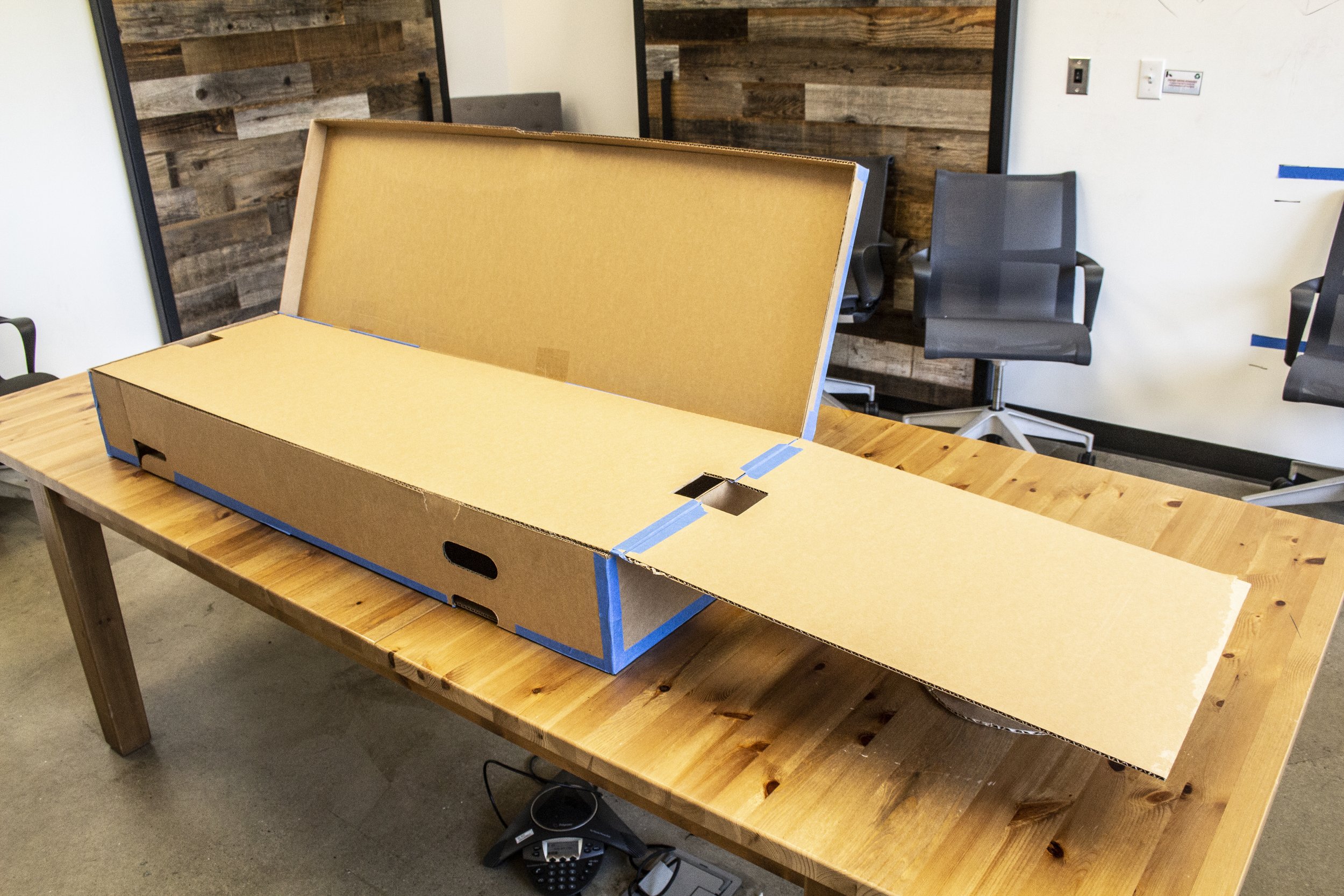
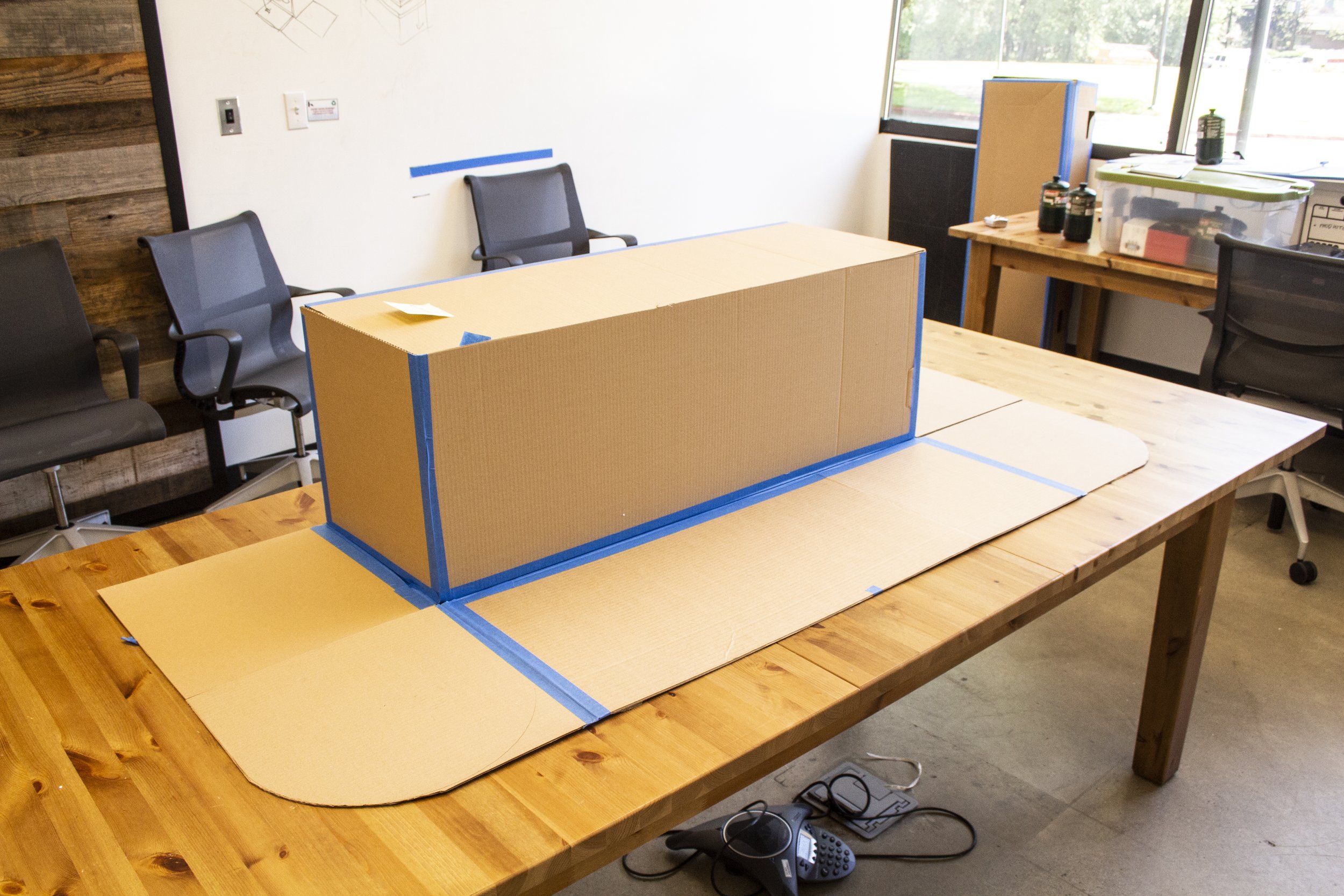


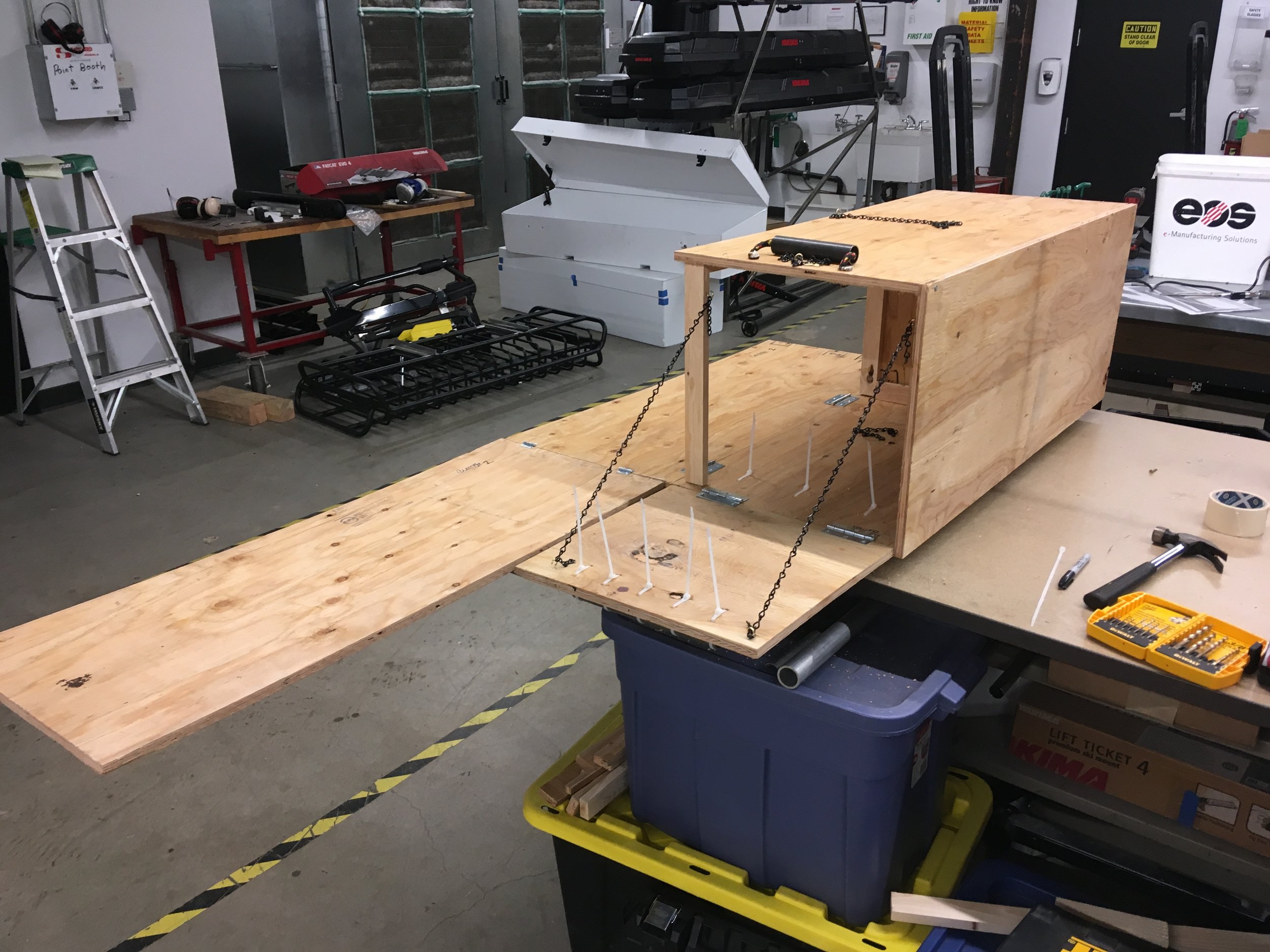


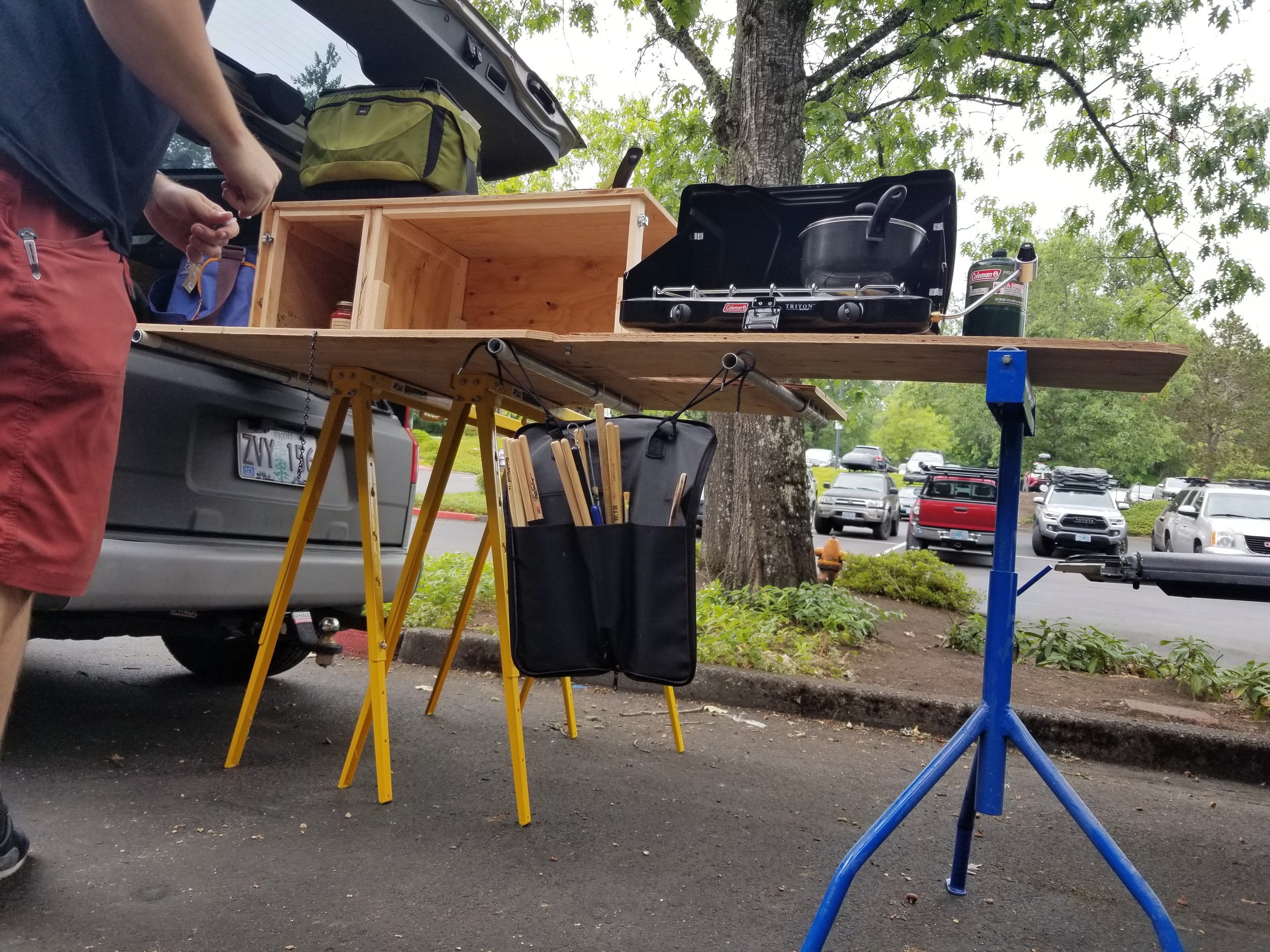
“MESS HAUL” | CONCEPT 1
Designed with folded or stamped sheet goods in mind as a manufacturing method, this concept has a more industrial look, with sharper lines and more a more technical exterior.
“MESS HAUL” | CONCEPT 2
Designed with rotomolding in mind as a manufacturing method, this concept has softer lines and a smoother, more streamlined exterior,

